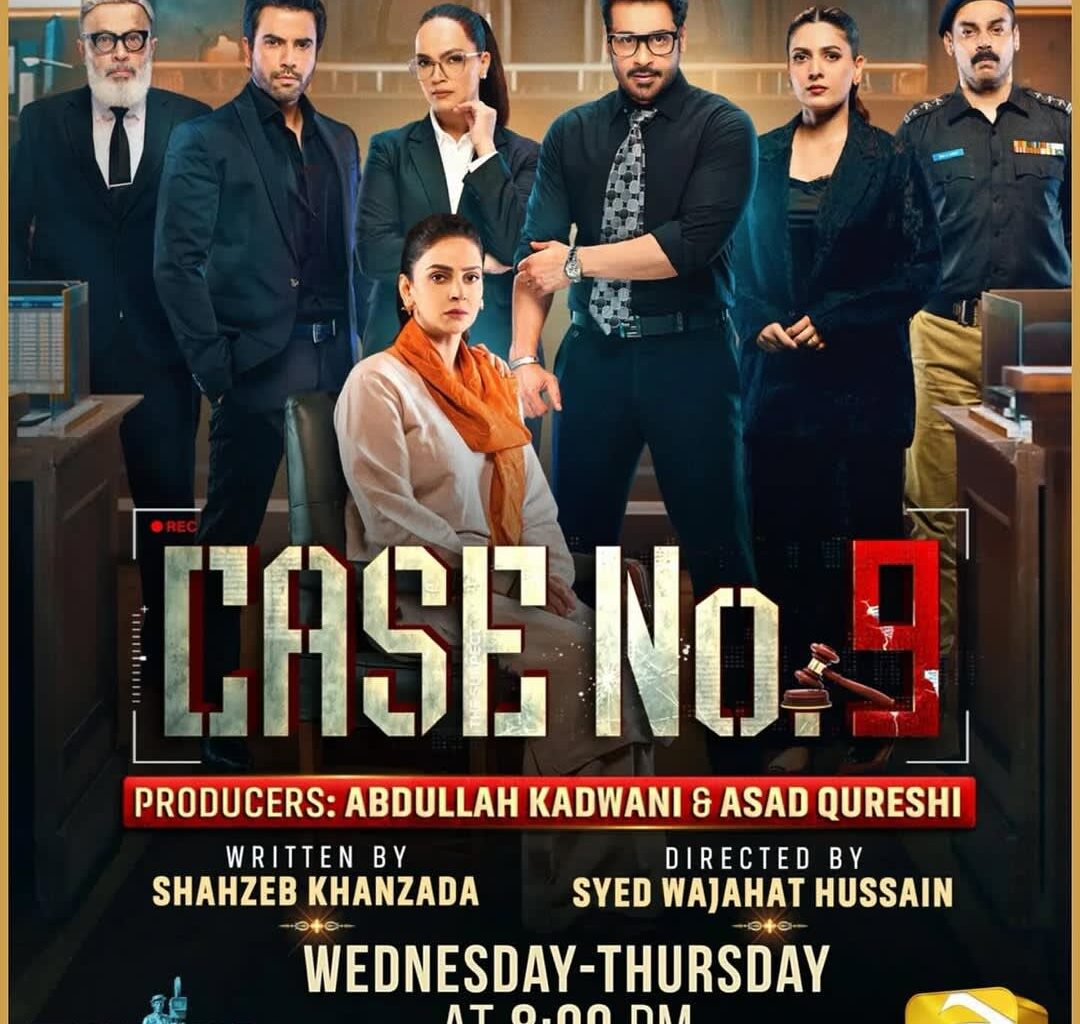With each new episode, Case No. 9 cements its reputation as one of the most smartly written Pakistani dramas in recent years. Written by Shahzaib Khanzada and directed by Wajahat Hussain, the series is notable for its cinematic perfection, visual delicacy, and emotional depth. Episodes 5 and 6, in particular, demonstrate how deliberate writing and excellent execution can transform a societal issue into compelling, thought-provoking entertainment.
The starting scenes make it obvious that this drama functions on a different wavelength. It makes it’s message without using exaggerated speech or big background soundtracks; instead, it creates suspense through quiet, reality, and stunning images. The production design is flawless; each frame seems planned. The nameplate on Aamina Sheikh’s office door, the orderly arrangement of her legal chambers, and even the well picked wardrobe—all of these little touches contribute to authenticity. The visual uniformity applies to the characters’ clothes as well: Kamran and Rohit’s affluent-yet-restrained style reflects their rich upbringing, but Sehr’s beautiful scarves and sophisticated ensembles perfectly reflect her creative mentality. Such attention to detail anchors the story in a plausible environment.
The direction of Wajahat Hussain merits special mention. His use of camera movement and editing makes the show feel both energetic and personal. The narrative moves fluidly between memories and the present, with visual clues guiding the spectator without misunderstanding. A sequence in which Sehr requests a glass of water and subsequently appears in her office sipping it shows fluid narrative. The approach keeps the audience emotionally and cognitively engaged by repeatedly putting together parts of the plot.
Performance is where Case No. 9*truly shines. Faysal Qureshi as Kamran gives one of his most terrifying performances to date. He portrays the predator with frightening calm—a guy well aware of his wrongdoing yet strangely comfortable in denial. His expertise is based on subtlety; he represents evil via control and manipulation rather than exaggerating its presence. His gaslighting methods in talks with his wife—turning her misgivings into charges of mistrust—are terrifyingly realistic and demonstrate Qureshi’s versatility.
Saba Qamar, as Sehr, balances such intensity with calm strength. Her act depicts the dilemma of a lady attempting to restore her dignity following trauma. She does not accentuate suffering; rather, she lives it. Her breakdown outside the courtroom, shown via repressed expression and quivering silence, is both heartbreaking and dignified. It’s the kind of performance that hits home without relying on theatrics. Junaid Khan, who plays Rohit, also gives a career-best performance, combining loyalty and inner conflict. Naveen Waqar, Hina Bayat, and other actors give emotional weight, particularly in scenes where parental grief and impotence are depicted with careful restraint.
The script’s strength is its emotional logic. Every emotion feels justified. The family’s perplexity, the lawyer’s professionalism, and even Rohit’s absence from court—all have plausible explanations. The writing does not sensationalize; rather, it humanizes. It also discusses critical topics such as power dynamics in the workplace and the fine line between consent and compulsion. The courtroom images demonstrate how legal processes protect victims, including realistic elements such as the separation of the accused and survivor during testimony—an authenticity rarely seen on local media.
If there is one weak connection, it is Kamran’s wife’s lack of depth. Though she looks the part, her acting lacks the complexity shown by the rest of the cast. However, this little error has little effect on the show’s overall impact.
As the show proceeds, the teaser teases more in-depth revelations—hidden CCTV video, unresolved concerns regarding the six missing days, and signs of Kamran’s previous misbehavior. The expectation develops gradually, based on character and consequence rather than shock value.
Finally, Case No. 9 works because it respects its audience. It approaches a delicate issue with maturity, use cinematic narrative rather than moral lecturing. It serves as a reminder that genuine horror is not found in acts of violence but rather in the covert abuse of power, and that bravery is the first step toward justice, no matter how long it takes.
Case No. 9 stands as a standard of clever, emotionally honest storytelling in a television world that is sometimes overflowing with formulaic melodrama. It’s more than just a criminal thriller; it’s a reflection of society’s conscience, handled with unique skill and care.

